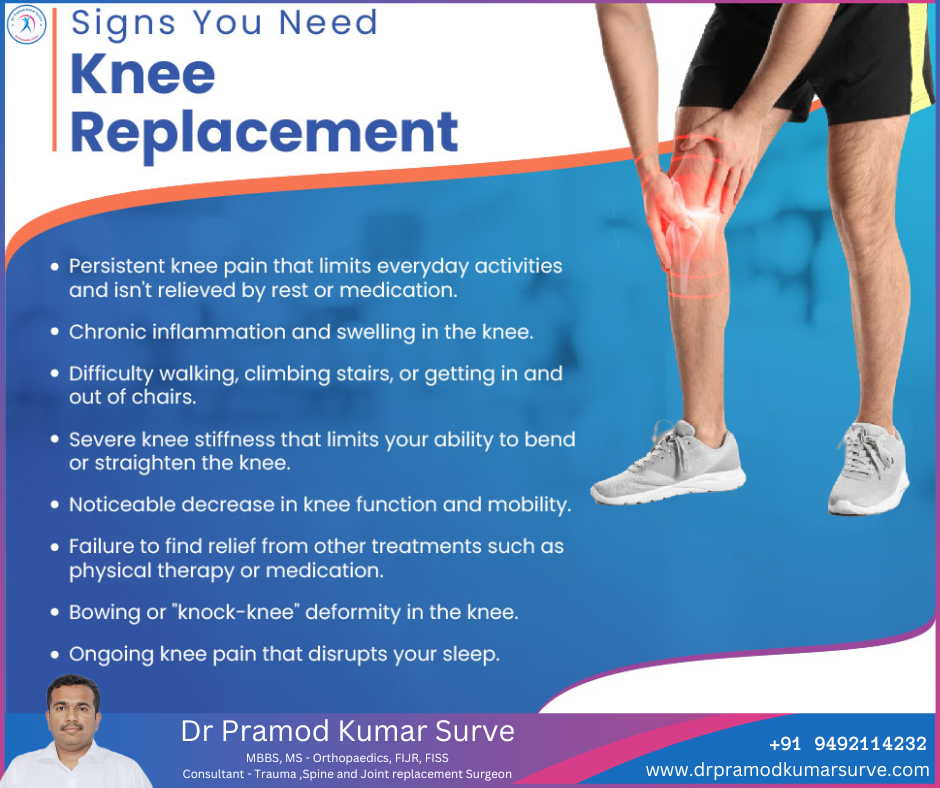Knee health is paramount to maintaining an active and fulfilling life. Unfortunately, issues with our knees can arise, impacting our daily activities. In this blog, we’ll explore the signs that might indicate the need for a knee replacement and discuss important considerations surrounding knee health.
1. Persistent Pain
One of the most prominent signs that you might need a knee replacement is persistent pain. If you find yourself experiencing chronic discomfort, especially during movement or weight-bearing activities, it’s crucial to pay attention. While temporary pain can be part of an active lifestyle, continuous pain may signal underlying joint problems.
2. Limited Range of Motion
A restricted range of motion in the knee can be a telling sign of joint issues. If you struggle to fully straighten or bend your knee, it could indicate the need for further evaluation. Understanding the difference between momentary stiffness and persistent limitations is key to recognizing potential concerns.
3. Swelling and Inflammation
Recurrent swelling and inflammation around the knee joint should not be ignored. Inflammation can lead to stiffness and discomfort, impacting your ability to move freely. If you notice persistent swelling, it’s essential to consult an orthopedic doctor.
4. Persistent Knee Stiffness
Do you wake up in the morning or experience stiffness after prolonged periods of rest? Persistent knee stiffness can hinder your mobility and affect your quality of life. If this stiffness persists, it may be an indication that your knee joint requires attention.
5. Reduced Functionality
A noticeable decrease in your ability to perform regular activities, such as walking, climbing stairs, or getting up from a seated position, could be a sign that your knee health is deteriorating. If these limitations persist, it’s time to consider seeking medical advice.
6. Limited Relief from Conservative Treatments
If nonsurgical treatments are no longer effective in managing your knee pain and discomfort, it may be an indication that your knee issues require more advanced interventions. Consult with your ortho doctor to explore alternative options.
7. Joint Deformities
Visible deformities or changes in the structure of your knee, such as a bow-legged or knock-kneed appearance, are significant indicators of total joint replacement. These deformities may progress over time, highlighting the importance of early intervention.
8. Persistent Discomfort at Rest
Experiencing pain or discomfort even when your knee is at rest is a serious sign that your knee joint may be in distress. If this discomfort persists, it’s crucial to find right orthopedic surgeon for knee treatment.
